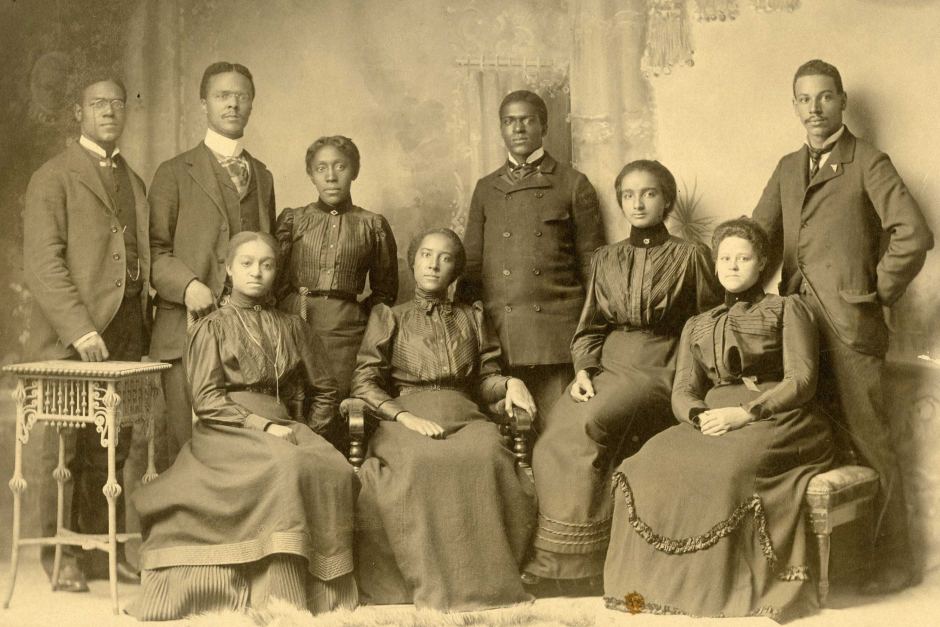William Cooper and the Fisk Jubilee Singers
More on “Ngarra Burra Ferra” (Turn Back Pharaoh’s Army)
This song has quite a multicultural history. It apparently was a song of American slaves, written down by a white family who were Abolitionists, who arranged it in a close harmony style adapted from Austrian choristers who visited the USA, taken up and sung around the world by the famed Fisk Jubilee Singers, who found it to be a great hit in Aboriginal Australia, where one Indigenous community translated it and have keep it as a vital song decades after everyone else stopped singing it.
“Ngarra Burra Ferra” is a Yorta Yorta adaptation, from Aboriginal Australia, of the African American spiritual “Turn Back Pharaoh’s Army,” which is in turn an adaptation of the two Jewish praise songs—one Moses’s, one Miriam’s—recorded in Exodus 15, following the Jews’ successful escape from slavery in Egypt.
Yorta Yorta is the language spoken by the Aboriginal people of the Goulburn and Murray Valleys in northeastern Victoria, Australia. Discriminated against for centuries because of their black skin, they resonate with the Jews’—and African Americans’—experience of state-sponsored oppression.
The Fisk Jubilee Singers of Nashville, renowned for bringing the African American spirituals tradition out onto the world stage, visited Maloga Aboriginal Mission in August 1886. They sang their standard repertoire, but the song that stole the show was the one they had translated into the native language of its audience, “Ngarra Burra Ferra.” The song celebrates freedom from oppression, victory over evil. It became for indigenous Australians a song of defiance and hope.
Uncle Boydie being interviewed about his grandfather, William Cooper, by Dr Meredith Lake.From 33 min mark. Plays until 52 min markAlso on Radio National tonight 31 May 20 at 6pm EST
Posted by Eli Rabinowitz on Sunday, 31 May 2020
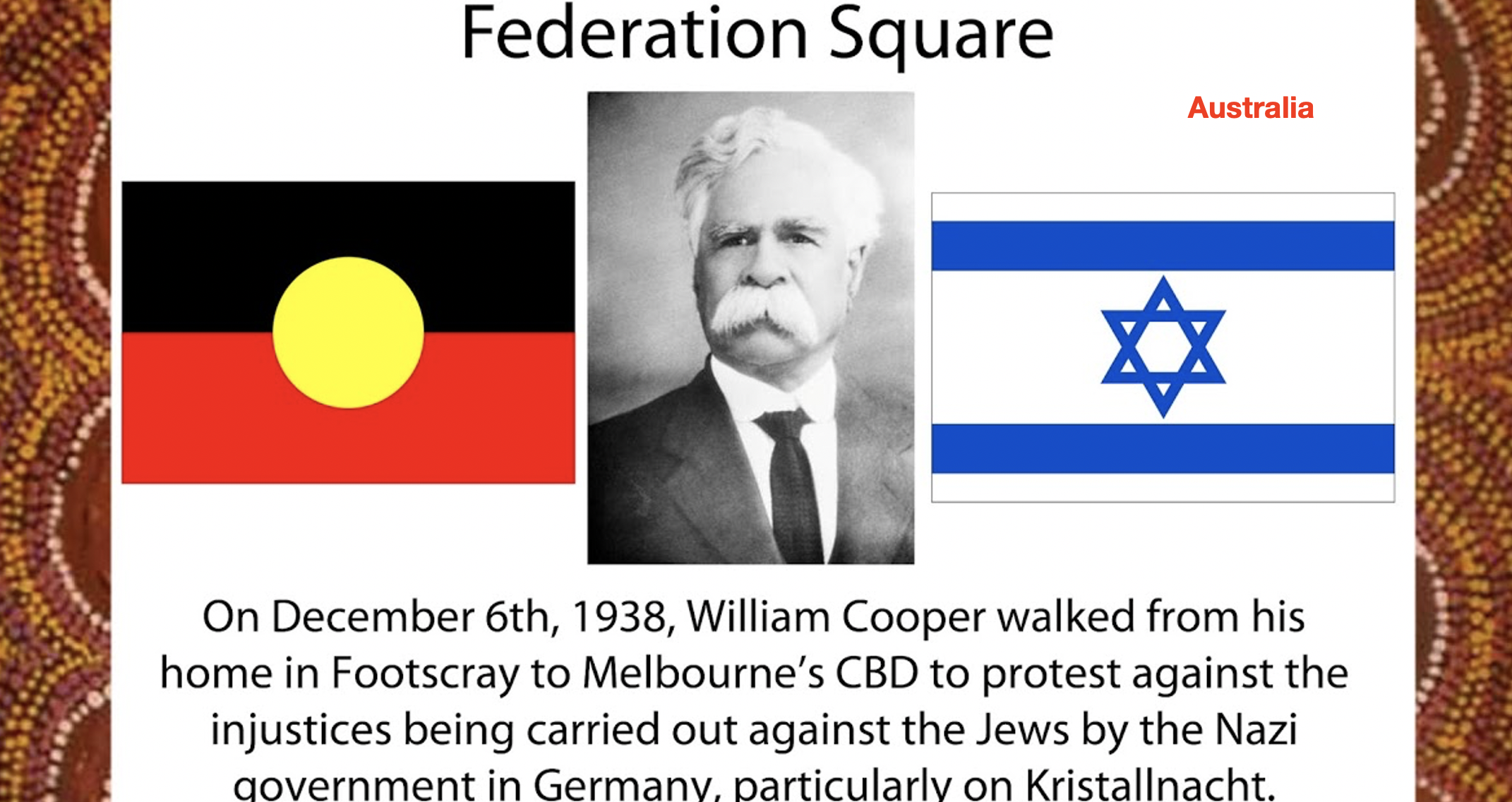
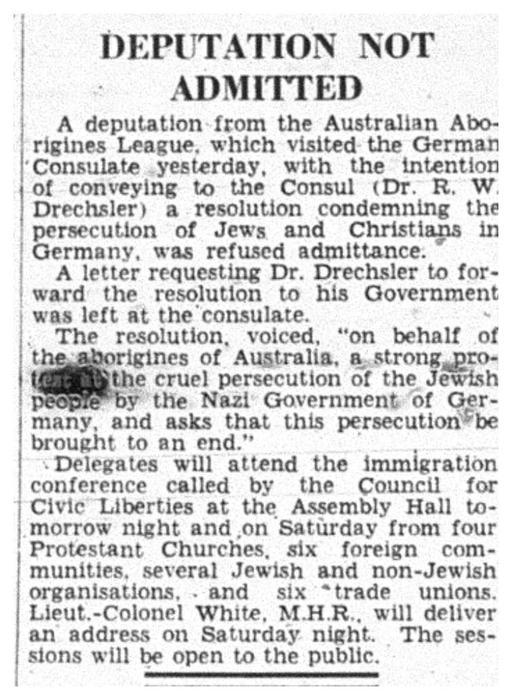


Barbara Miller about William Cooper in her new book description for White Australia Has A Black History
“Some say he (William Cooper) was Australia’s Martin Luther King.
William Cooper was born in 1860 to his tribal mother who saw the first white settlers come to the Murray River. He saw his Aboriginal people dying around him. Starvation and maltreatment took their toll. He became passionate that they should have a voice in Australia’s federal parliament.
But his people could not vote and were not even counted in the census. How could he get the government to listen to him?
Would his skills in oratory, letter-writing and organizing his people in a national organization achieve his goals or would his activism bring backlash?
Betrayed by the Prime Minister, Cooper joined with other leaders in Sydney for the 150th anniversary of white settlement and staged a protest called the Day of Mourning. This set in train the controversy that still surrounds Australia Day today. Cooper campaigned for the truth of the black history of white Australia to be told. He mentored future generations of leaders who are still calling for “voice, treaty, truth” today. This book covers the history of the struggle for First Nations peoples’ human rights from settlement to today.
William Cooper lost his son Dan in World War 1. He was anguished that Aboriginal soldiers gave their lives for a country that had stolen their land and dignity. He campaigned for a new deal but was it a pipe dream?
Cooper’s health was failing but he had lit a fire that would not be put out. One of those who picked up the baton was his grandson, Alf or Uncle Boydie. Could Uncle Boydie unearth the petition meant for the King of England in the 1930’s and find a way to get it to the King’s granddaughter, Queen Elizabeth 11? Poetic justice but a near-impossible task.
Historian Barbara Miller has written a number of riveting books on Australian history and biography and makes history come alive. This book is the first in the William Cooper Gentle Warrior Series. She was a finalist in the Queensland Literary Awards for the Premier’s Award for a Work of State Significance in 2018 for her memoir “White Woman Black Heart: Journey Home to Old Mapoon.”
Click “Buy Now” & discover Australia’s hidden history!”
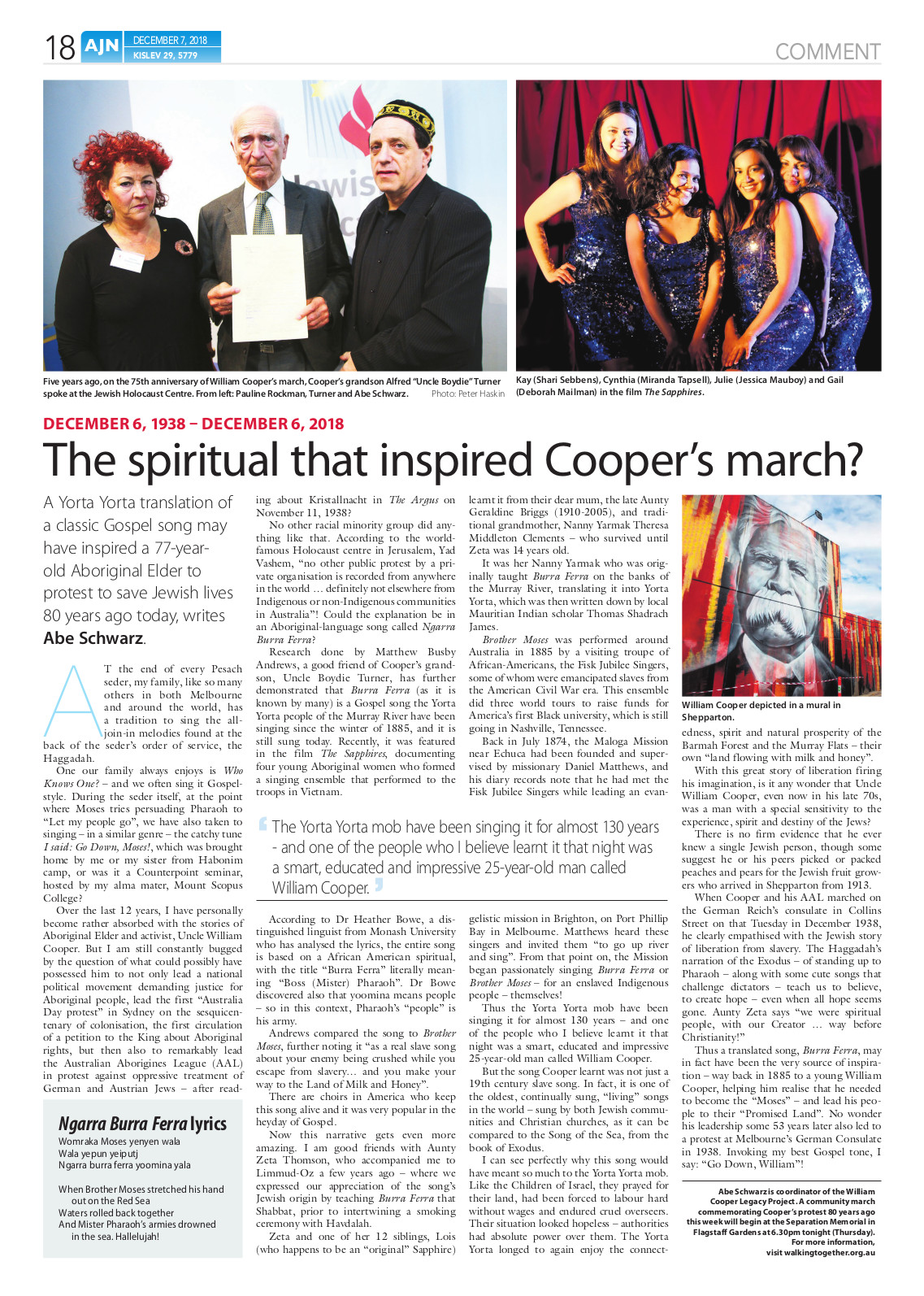
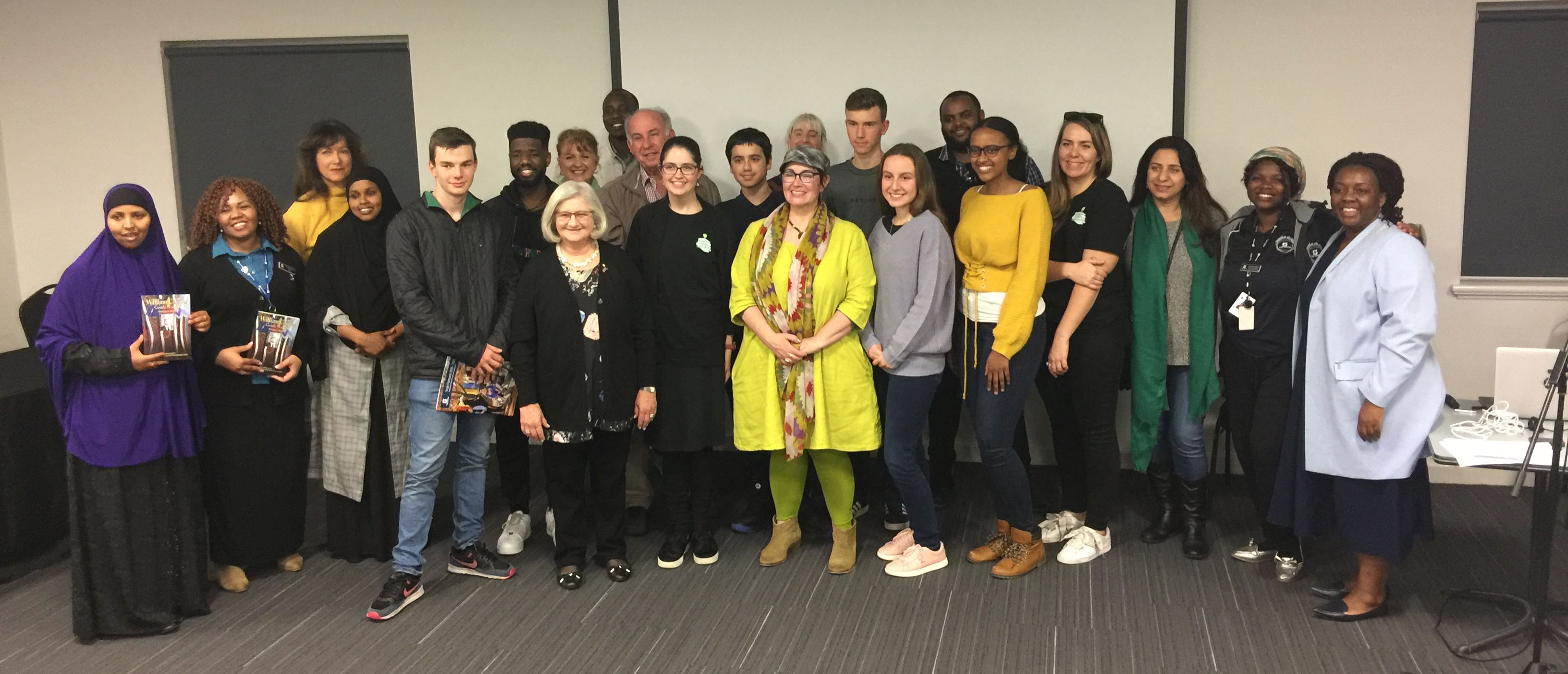
https://youtu.be/ab_o311MR6Y
International Holocaust Remembrance Day – 27 January 2021
Uncle Boydie’s Birthday – January 2021
Yom Hashoah 8 April 2021


